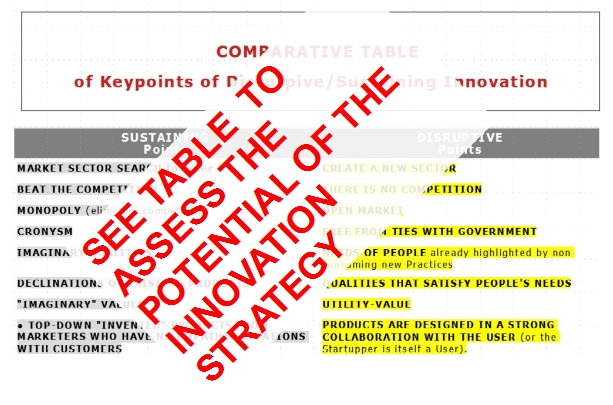INTEGRATION IN AN ECOSYSTEM
The “disruptive” qualities of a product – the new forms of value and the decrease in purchase and product management costs – can only be obtained if the product can be integrated into an eco-system of hardware and software products, and services.
That is a decisive added value derives from the integration in an Eco-system that allows the product (good or service) to develop further utility. It deals with:
● ECOSYSTEM THAT WAS PREVIOUSLY CREATED SPOTANEOUSLY on the Market (need to adapt to existing standards)
● ECO-SYSTEM CREATED AD HOC
– iin the most traditional way, with the integration of Products from the same Company.
– with the creation of alliances with other Companies (with emerging standards);
● “SOCIAL ECOSYSTEM” OF PRACTICES DI NON-CONSUMING:
.
The Ecosystem therefore integrates several elements: it is based on the Open Value Web (replaces the Supply Chain) which is open to collaboration of any kind (upstream and downstream). In which everyone is a complementor who contributes to increasing the value of the Value proposition.
In this new dimension, it makes more sense to speak of Offer (range of integrated products) than of single product.
These complementors are suppliers, other Companies, Consultants, finance providers, distributors, Authorities, Universities and research institutions, Crowd, etc …
Note that in this case it is a completely different “System” from those currently in vogue. There is no longer a Platform with an architecture defined by someone (with Leaders defining its organization and rules)
It is an Ecosystem of a substantially different nature: a holistic system in which Peer to Peer, Sharing characteristics prevail, etc.
The Ecosystem is therefore much more flexible than the current ones: and above all, it allows the useful value for the Customer to evolve much more quickly (leading to an acceleration of innovation).
.
To understand the meaning of the emerging Ecosystem, it is necessary to imagine the new scenario of the Disruptive Innovation Market, in which the foundations radically change: the underlying values practically invert and, for example, profit becomes a collateral consequence “of the impulse to develop useful value for people <see Mission/Purpose of Business>.
Upstream of all it is necessary to understand the meaning of the concept of Sharing economy: an economy in which profits are based on sharing resources and ideas.


